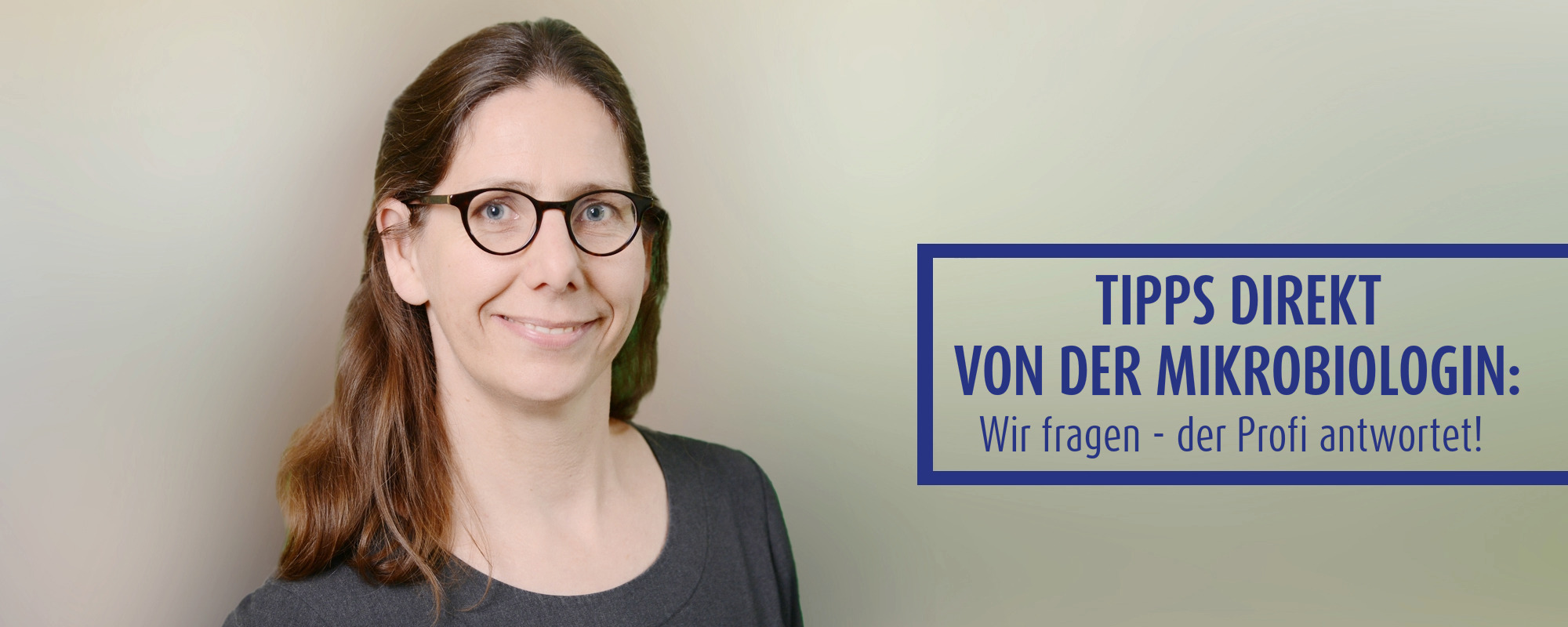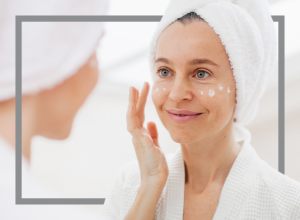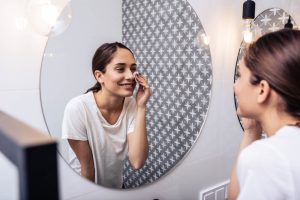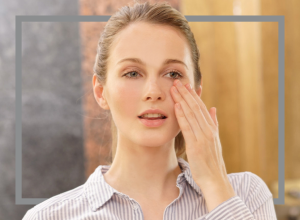Spirulina microalgae (Spirulina platensis) can be used in many ways, whether in a healthy diet or in cosmetics. Its special and numerous modes of action make it so unique. Microbiologist Prof. Dr. Antje Labes gets to the bottom of this topic in her research into marine natural products.
So we asked questions again, and here are the answers from our expert. With an impressive insight into the details of these tiny creatures:
The ocean and its creatures are still unexplored in many parts, what fascinating facts should everyone know?
The sea covers around 70 % of the Earth’s surface. In a way, our planet could actually be called an “ocean”. The oceans store around 90 % of the Earth’s heat. They act as a global climate system and buffer extreme temperatures.
The oceans also produce over 50 percent of the oxygen we breathe. Tiny photosynthetic organisms in the sea, known as phytoplankton, are the producers. The oceans therefore play an important role for the atmosphere, the climate and biological diversity. Despite all this, they are still largely unexplored today.
This applies in particular to the organisms that live in the sea. It is estimated that there are more than 2 million species, but only a fraction have been researched to date. This is particularly true of microorganisms that have adapted to the special conditions. Many of them produce natural substances that we can use.
Oceans are therefore full of wonders. They are also vital for our ecosystem, our climate and our survival.
Spirulina microalgae is a living organism from the ocean – what exactly is it?
Spirulina microalgae is a fascinating, ancient organism that is often associated with the ocean. Although it was isolated from freshwater sources, it is adapted to the enormous salt concentrations found in the primeval ocean. Spirulina is not a plant, but a cyanobacterial microalgae. In other words, a bacterium.
Spirulina has probably existed for over 3.5 billion years. Under the microscope, spirulina looks like a small, spirally twisted fiber or spiral – hence the name. Scientifically, the algae is now called Limnospira.
Is there a difference between macroalgae and microalgae?
Macroalgae (such as Laminaria, Fucus and red algae) and microalgae (such as Spirulina and Chlorella) differ both in size and in their cosmetic properties.
Microalgae are microscopically small and contain a particularly high concentration of antioxidants such as astaxanthin, phycocyanin and chlorophyll. They protect the skin from free radicals and stimulate cell renewal and the production of collagen. They are mainly used in anti-ageing products and serums.
Macroalgae, on the other hand, are larger and primarily offer moisture-binding properties, minerals and a soothing effect on the skin. They are popular in masks, body wraps and scrubs and can regenerate the skin and promote blood circulation.
While microalgae are often used as highly concentrated, active ingredients, macroalgae are mainly used in body care.
How do microalgae affect the immune system?
Microalgae such as spirulina contain a range of nutrients and bioactive compounds that can strengthen the immune system. They have anti-inflammatory, antioxidant and antimicrobial effects and promote the production of immune cells. In combination with their ability to support the microbiome, they are a valuable aid. This is because they can support the immune system and promote general health.
These properties make microalgae an excellent natural source to strengthen the immune system and prevent disease. Certain microalgae have antimicrobial properties that help inhibit the growth of harmful microbes, bacteria and viruses. Microalgae are also rich in polysaccharides, which can stimulate the activity of immune cells such as macrophages and T-cells. These cells are crucial for recognizing and fighting pathogens.
What makes spirulina microalgae so special?
Spirulina microalgae is mainly used in (medical) cosmetics due to its nutrient content and versatile application. However, what really sets spirulina apart is a bioactive polysaccharide that has an impressive antimicrobial and antiviral effect. This makes spirulina a valuable resource for skin care. Especially for skin problems caused by bacteria, viruses or fungi.
In addition to these special effects, spirulina offers a range of antioxidant and anti-inflammatory properties. It contains antioxidants that protect the skin from harmful free radicals and thus prevent premature skin ageing. Spirulina is also rich in chlorophyll and beta-carotene, which regenerate the skin, soothe and promote natural wound healing.
Their anti-inflammatory effect helps:
- soothe skin irritations,
- Reduce redness
- and accelerate the healing process of inflammatory skin diseases such as acne, rosacea or eczema.
In addition to its soothing effect on the skin, spirulina also helps to moisturize the skin. Important minerals such as magnesium, iron and zinc provide the skin with nutrients and strengthen its natural protective barrier. These properties make spirulina an ideal ingredient for anti-aging products, moisturizers and serums. As they not only protect the skin, but also actively stimulate regeneration and even out the complexion.
Spiralin® is the patented active ingredient from ocean pharma’s spirulina microalgae. What makes it so valuable for active cosmetics?
Spiralin®is the patented active ingredient from spirulina microalgae developed by ocean pharma. This special active ingredient plays a particularly valuable role in active cosmetics. What makes Spiralin® so unique are its highly effective, biologically active properties. These have a particularly positive effect on skin health.
Its antimicrobial, antiviral and anti-inflammatory effects make it a key ingredient in products used in the modern cosmetics industry.
The main benefit of Spiralin® lies in its ability to inhibit the growth of harmful bacteria, fungi and viruses. The active ingredient contains Ca-Spirulan, a polysaccharide that acts as a powerful antimicrobial agent. Studies have shown that Spiralin® effectively suppresses the growth of acne bacteria, skin fungi and viral infections. Spiralin® blocks the entry of viruses into the cells and thus reduces the severity and duration of infections.
An additional benefit of Spiralin® is its origin from spirulina microalgae, which is cultivated in a sustainable way. Compared to non-natural ingredients, spirulina has a low ecological footprint, which also makes it an environmentally friendly choice for cosmetic products.
Did you like our expert interview? Further interesting topics can be found in our expert tips on ocean-pharma.de
Experten-Tipp entstand in Zusammenarbeit mit:
Patrick Günther
Patrick Günther completed his pharmacy studies in Hamburg and, after obtaining his licence to practise, worked for several years in marketing and sales in the pharmaceutical industry. In 2003, he took over ocean pharma, the company founded by his father in Reinbek near Hamburg in 1978. Together with his business partner, he patented the important processing and standardisation process for the microalgae active ingredient Spiralin® and developed a wide range of medical cosmetics and foot care products based on Spiralin®.







